
Ratnapura: The Gem City of Sri Lanka
Nestled in the heart of Sri Lanka, Ratnapura is a city renowned for its rich history and natural beauty. Known as the Gem City, Ratnapura is famous for its precious stones, including sapphires, rubies, and emeralds. The city’s name itself means 'City of Gems' in Sinhalese, a testament to its glittering heritage. The landscape around Ratnapura is lush and green, with rolling hills and dense forests. The city is a gateway to the Sinharaja Forest Reserve, a UNESCO World Heritage Site teeming with biodiversity. Visitors can enjoy guided tours that showcase the rich flora and fauna of the region, including many species that are unique to Sri Lanka. Ratnapura is also a cultural hub, with many temples and historical sites to explore. The Maha Saman Devalaya is one of the most significant, dedicated to the deity Saman, a guardian of the island. The town’s vibrant markets are perfect for those looking to buy gemstones and local crafts, offering a unique glimpse into the daily life and traditions of the local people.
Local tips in Ratnapura
- Visit the gem mines early in the morning to see miners at work and understand the gemstone extraction process.
- Wear comfortable walking shoes as the terrain can be uneven, especially if you plan to explore the forests and hills.
- Hire a local guide to get the most out of your visit to the Sinharaja Forest Reserve.
- Carry insect repellent and sunscreen, as the climate can be humid and there are many outdoor activities.
- Try the local cuisine, especially the fresh tropical fruits and traditional Sri Lankan dishes available in town.
Ratnapura: The Gem City of Sri Lanka
Nestled in the heart of Sri Lanka, Ratnapura is a city renowned for its rich history and natural beauty. Known as the Gem City, Ratnapura is famous for its precious stones, including sapphires, rubies, and emeralds. The city’s name itself means 'City of Gems' in Sinhalese, a testament to its glittering heritage. The landscape around Ratnapura is lush and green, with rolling hills and dense forests. The city is a gateway to the Sinharaja Forest Reserve, a UNESCO World Heritage Site teeming with biodiversity. Visitors can enjoy guided tours that showcase the rich flora and fauna of the region, including many species that are unique to Sri Lanka. Ratnapura is also a cultural hub, with many temples and historical sites to explore. The Maha Saman Devalaya is one of the most significant, dedicated to the deity Saman, a guardian of the island. The town’s vibrant markets are perfect for those looking to buy gemstones and local crafts, offering a unique glimpse into the daily life and traditions of the local people.
When is the best time to go to Ratnapura?
Iconic landmarks you can’t miss
Sri Sumana Saman Devalaya
Discover the serene beauty and spiritual significance of Sri Sumana Saman Devalaya, a historic Buddhist temple in the heart of Ratnapura.
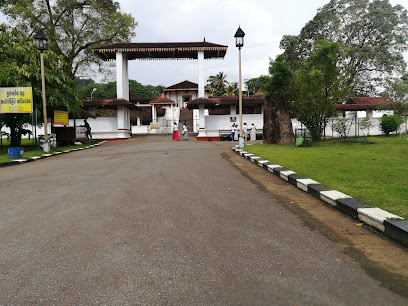
Katugas Ella Waterfall
Experience the breathtaking beauty of Katugas Ella Waterfall, a hidden gem in Sri Lanka offering stunning views and a serene escape into nature.
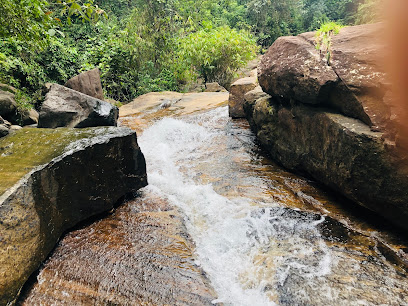
Rathnapura National Museum
Discover the cultural treasures of Sri Lanka at Rathnapura National Museum, where history and heritage come alive in every exhibit.
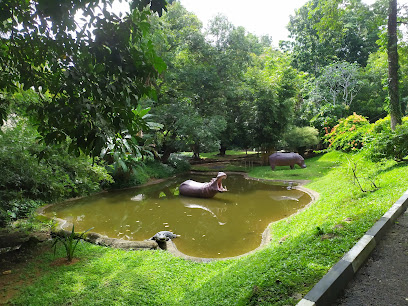
Dehena Waterfall
Experience the serene beauty of Dehena Waterfall, a stunning natural attraction in Sri Lanka known for its breathtaking views and tranquil atmosphere.
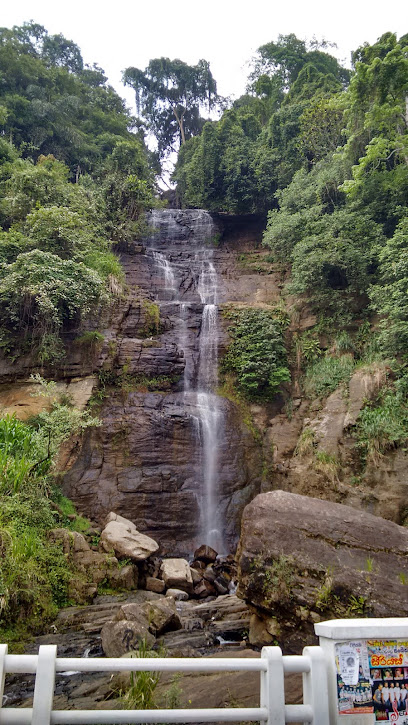
Mapalana Ella Falls
Explore the breathtaking Mapalana Ella Falls in Sri Palabaddala, a majestic waterfall offering stunning views and unforgettable nature experiences.
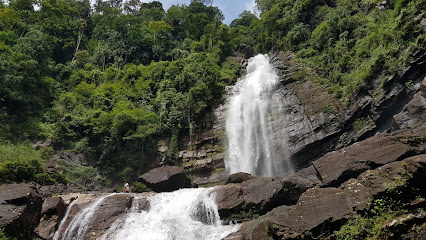
Rajanawa Waterfall
Discover the enchanting beauty of Rajanawa Waterfall, a stunning natural attraction in Marapana, Sri Lanka, perfect for adventure and relaxation.
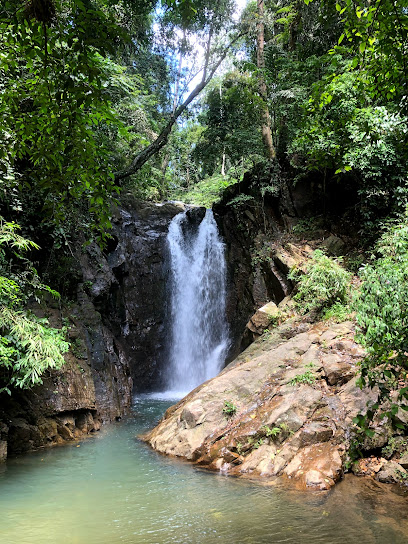
පොත්ගුල් විහාරය
Explore the spiritual serenity and breathtaking architecture of Pothgul Vihara Temple, a must-visit Buddhist gem in Ratnapura, Sri Lanka.
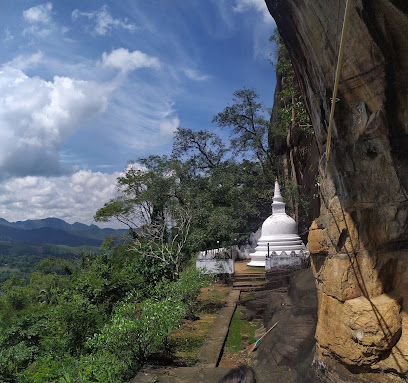
Dumpus Ella
Explore the breathtaking landscapes of Dumpus Ella, a hidden gem in Sri Lanka offering stunning views, lush greenery, and serene tranquility.
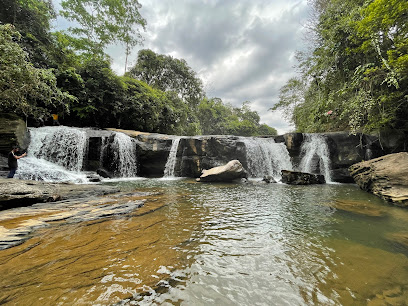
Wanaidalaketiya Sri Ariyagnana Temple
Explore the serene beauty and spiritual depth of Wanaidalaketiya Sri Ariyagnana Temple in Ratnapura, a hidden gem for cultural enthusiasts and peace seekers.
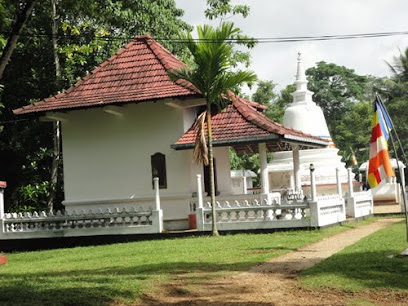
Rathnapura Clock Tower (රත්නපුර ඔරලෝසු කණුව)
Experience the charm of Ratnapura at the Rathnapura Clock Tower, a historical landmark that showcases the city's rich cultural heritage and vibrant local life.
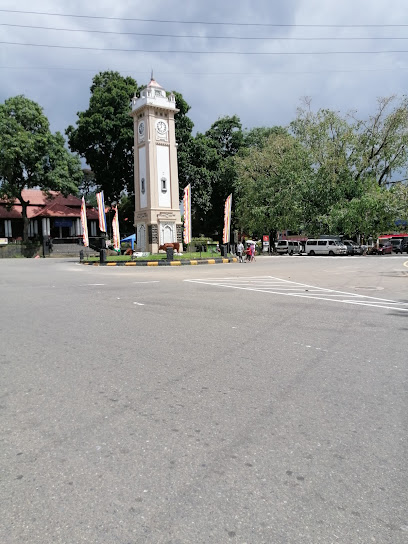
රත්මල් ඇල්ල
Explore B391, an enchanting tourist attraction in Sri Lanka, where culture, nature, and culinary delights await your discovery.
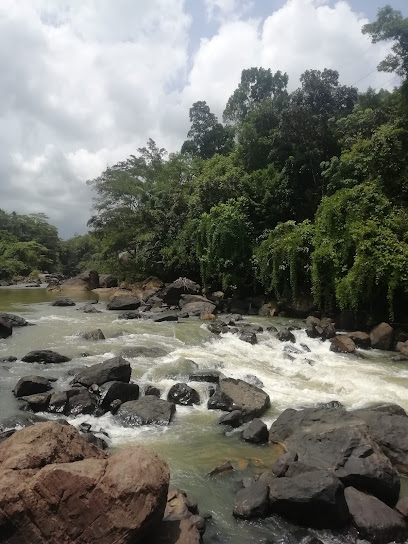
Gemmological musemum
Discover the captivating world of gemstones at Ratnapura's Gemmological Museum, where beauty and education intertwine for an unforgettable experience.
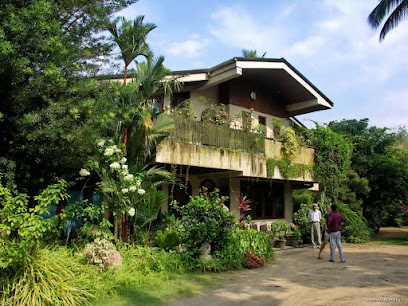
පොත්ගුල් විහාරය - Cave
Immerse yourself in the serenity of Pothgul Vihara Cave, a historical landmark in Ratnapura, where nature and culture beautifully intertwine.
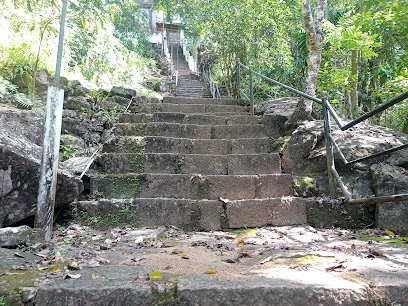
Lihiniyan Kelina Ella Falls
Explore the enchanting beauty of Lihiniyan Kelina Ella Falls, a hidden gem in Ratnapura, perfect for nature lovers and adventure seekers.
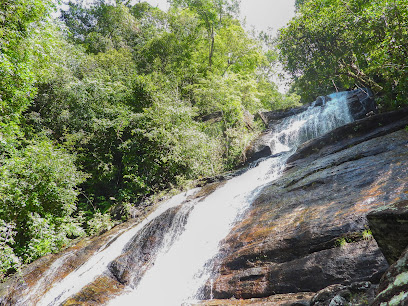
Ratnapura Portuguese Fort – රත්නපුර පෘතුගීසි බලකොටුව
Discover the historical depths of Ratnapura Portuguese Fort, a captivating landmark showcasing Sri Lanka's colonial past amidst lush landscapes.

Unmissable attractions to see
Dehena Waterfall
Discover the breathtaking beauty of Dehena Waterfall, a serene escape in Sri Lanka's lush landscape, perfect for nature lovers and adventure seekers.
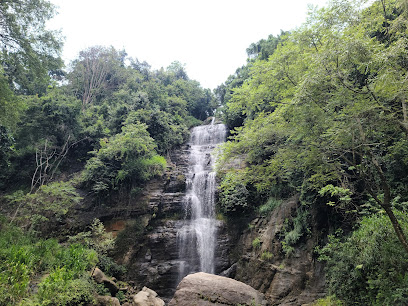
Mapalana Ella Falls
Experience the breathtaking beauty of Mapalana Ella Falls, a stunning natural attraction in Sri Palabaddala, Sri Lanka, perfect for nature lovers and adventure seekers.
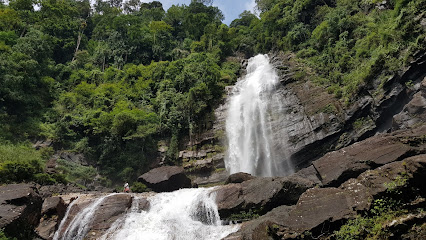
Rajanawa Waterfall
Explore the enchanting Rajanawa Waterfall in Marapana, Sri Lanka, a serene escape into nature's breathtaking beauty and vibrant wildlife.
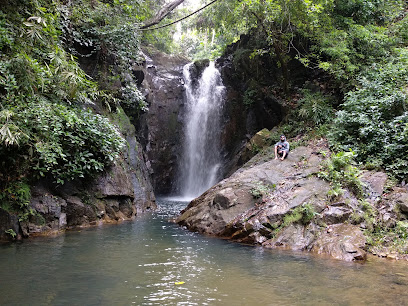
Minee Ella
Explore the natural beauty and serene waterfalls of Minee Ella, a hidden paradise in Ratnapura, Sri Lanka, ideal for adventure and relaxation.
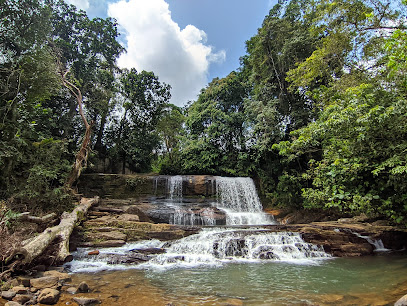
පොත්ගුල් විහාරය
Explore the ancient beauty and spiritual serenity of Pothgul Vihara, a remarkable Buddhist temple in Ratnapura, Sri Lanka.
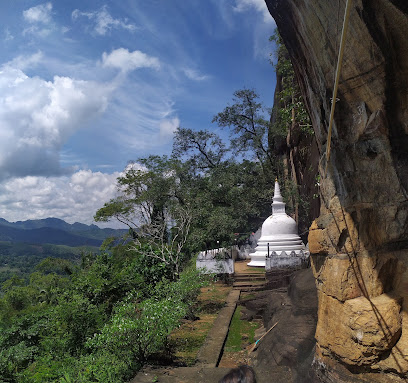
Ratnapura | Gem City Tour with Sampa Wayo Sri Lanka
Explore Ratnapura, the Gem City of Sri Lanka, where precious stones meet breathtaking natural beauty and rich cultural heritage.
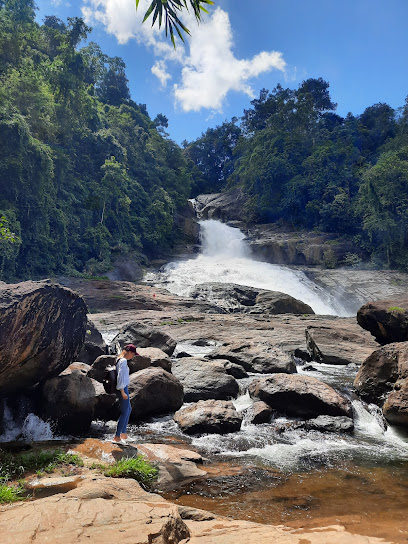
Thepulangoda Waterfall
Discover the enchanting beauty of Thepulangoda Waterfall, a serene escape in Ratnapura, perfect for nature lovers and adventure seekers alike.
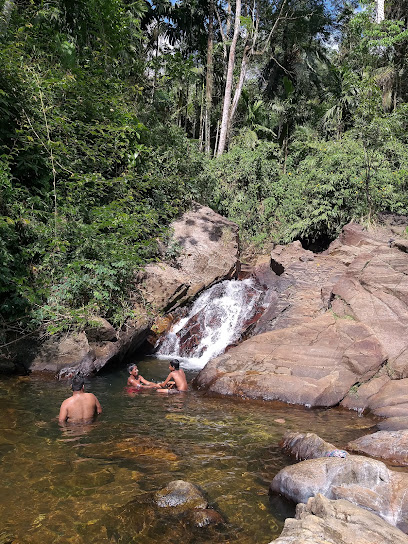
Hathbamba Ella Waterfall
Experience the breathtaking beauty of Hathbamba Ella Waterfall, a serene escape in Ratnapura, Sri Lanka, perfect for nature lovers and adventure seekers alike.
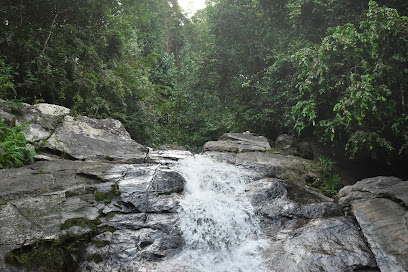
Aanda Ella Fall
Explore the mesmerizing Aanda Ella Fall in Sri Lanka, a breathtaking natural wonder perfect for adventure seekers and nature lovers alike.
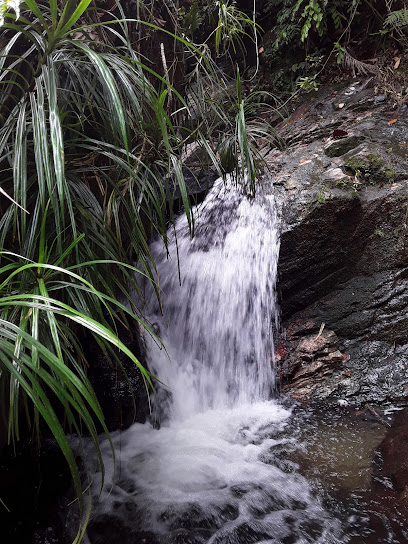
Samanala Mountain view point
Samanala Mountain View Point: Experience breathtaking views and serene nature in the heart of Ratnapura, Sri Lanka.
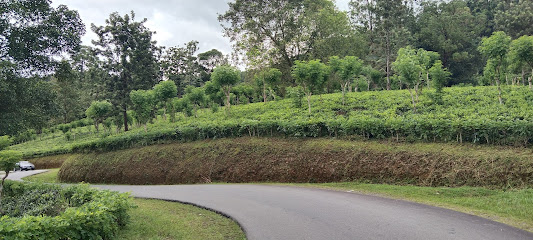
රත්මල් ඇල්ල
Discover the breathtaking beauty and rich culture at B391, a captivating tourist attraction in the heart of Sri Lanka, perfect for every traveler.
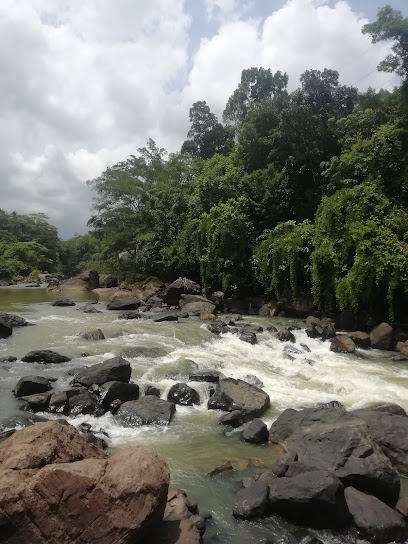
Hathbili Ella Falls
Explore the enchanting Hathbili Ella Falls in Ratnapura, a stunning natural attraction perfect for nature lovers and adventure seekers.
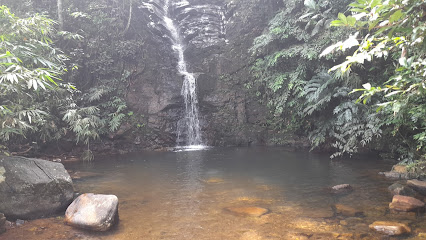
Hidellana Kanda View Point
Experience breathtaking views and serene hiking trails at Hidellana Kanda View Point in Ratnapura, Sri Lanka, a true gem for nature lovers.
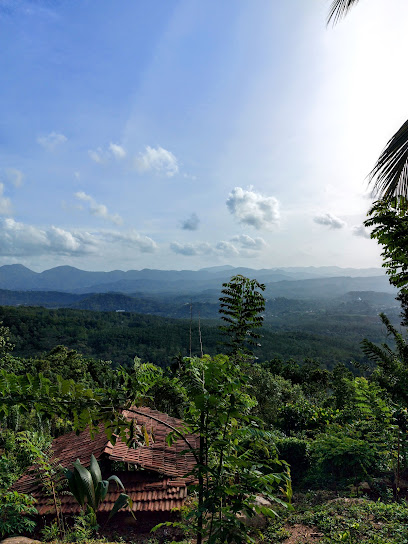
Delgamu ella දෙල්ගමු ඇල්ල
Experience the serene beauty and cultural charm of Delgamu Ella in Kuruwita, Sri Lanka, a perfect retreat for nature lovers and adventure seekers.
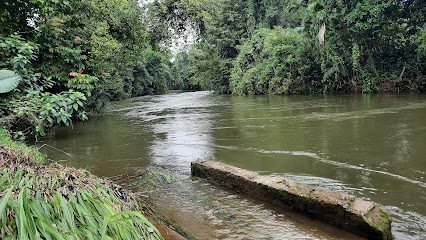
Dhushan ella
Experience the breathtaking beauty of Dhushan Ella, a stunning waterfall in Palawela, Sri Lanka, perfect for nature lovers and adventure seekers.
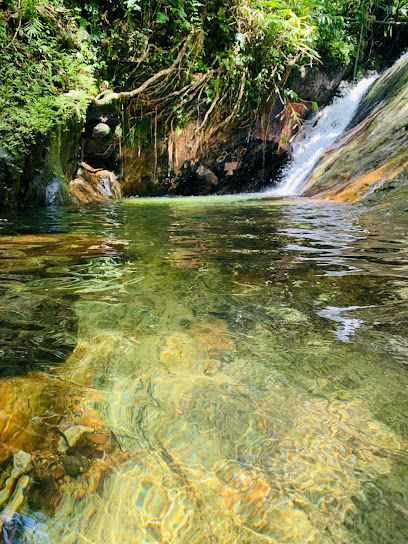
Essential places to dine
KFC - Ratnapura
Experience the taste of crispy fried chicken at KFC Ratnapura, where local charm meets fast food favorites.
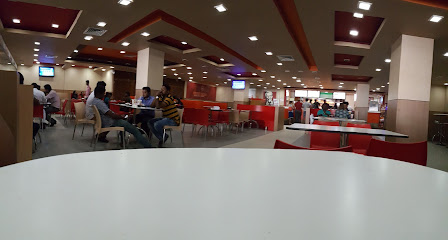
Pizza Hut - Ratnapura
Savor the best pizza experience in Ratnapura at Pizza Hut, where every slice is crafted with passion and freshness.
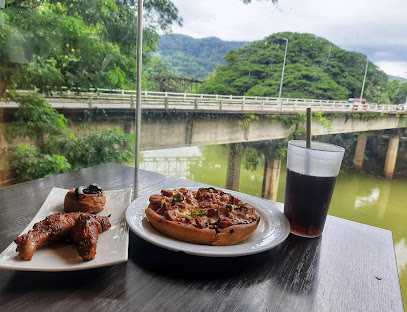
Garland Café
Discover the delightful flavors of Sri Lanka at Garland Café in Ratnapura - where local ingredients meet global tastes.
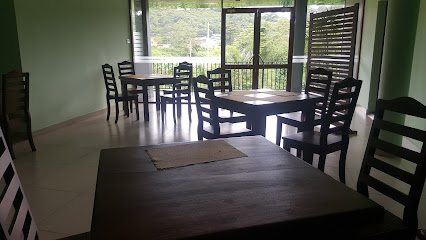
Dine Out Indian Restaurant
Savor authentic Indian cuisine in Ratnapura at Dine Out Indian Restaurant - where flavor meets tradition.
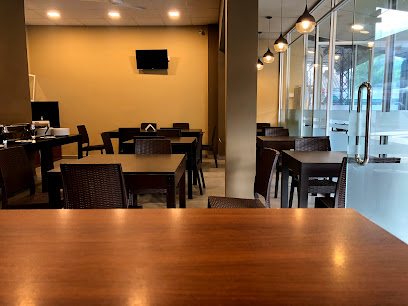
P&S (Perera & Sons) - Ratnapura (Kudugalwatte)
Savor authentic Sri Lankan flavors at P&S (Perera & Sons) in Ratnapura - a must-visit dining destination.
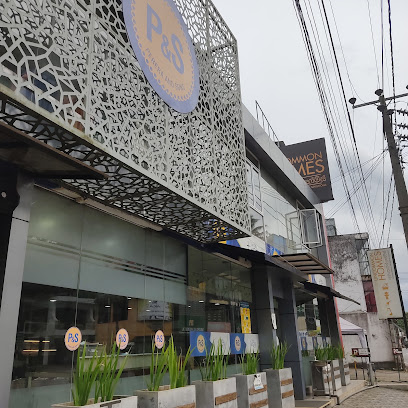
Sapthapadhi Hotel
Experience authentic Sri Lankan cuisine at Sapthapadhi Hotel in Ratnapura – where flavors meet tradition.
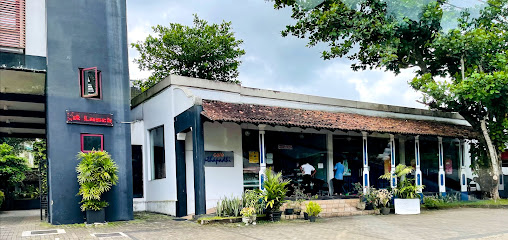
The Paasto 47
Experience authentic Sri Lankan flavors at The Paasto 47 in Ratnapura - where every dish tells a story.
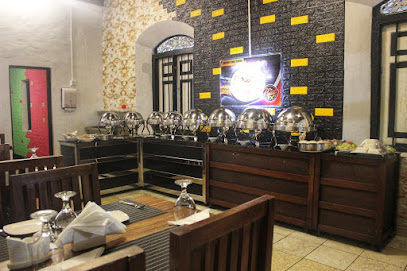
KELE KADE FAMILY RESTAURANT
Experience authentic Sri Lankan cuisine at Kele Kade Family Restaurant in Ratnapura – where flavors meet hospitality.
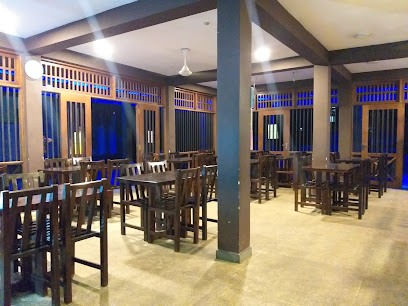
Randiya
Explore Randiya in Ratnapura - A fast food gem serving up delicious bites in a vibrant setting.
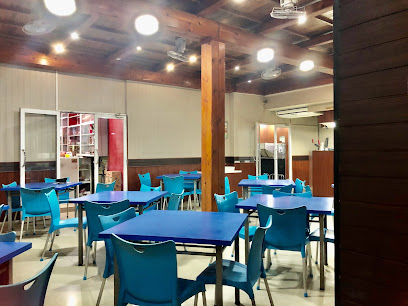
Saroja Hotel
Discover the flavors of Sri Lanka at Saroja Hotel in Ratnapura – where authentic cuisine meets warm hospitality.
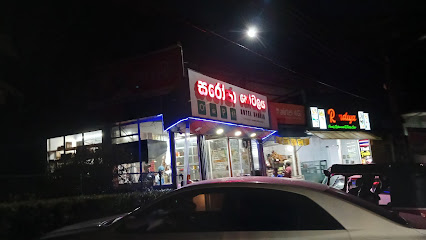
Tandoori Indian Family Restaurant Rathnapura
Experience authentic Indian cuisine at Tandoori Indian Family Restaurant in Ratnapura – where every meal is a celebration of flavor.
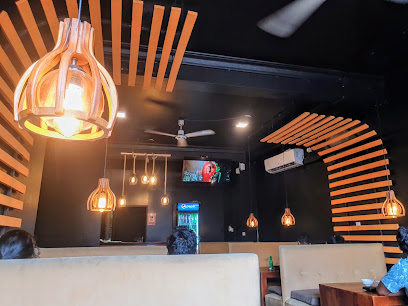
Daiya Hut Family Restaurant
Experience authentic Sri Lankan cuisine at Daiya Hut Family Restaurant in Ratnapura - where flavor meets hospitality.
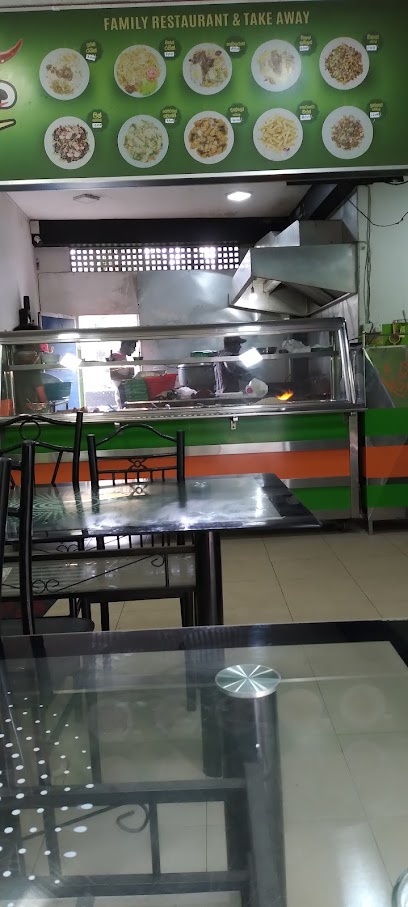
Grill Corner
Experience delicious grilled delights at Grill Corner in Ratnapura – perfect for family gatherings and culinary adventures!
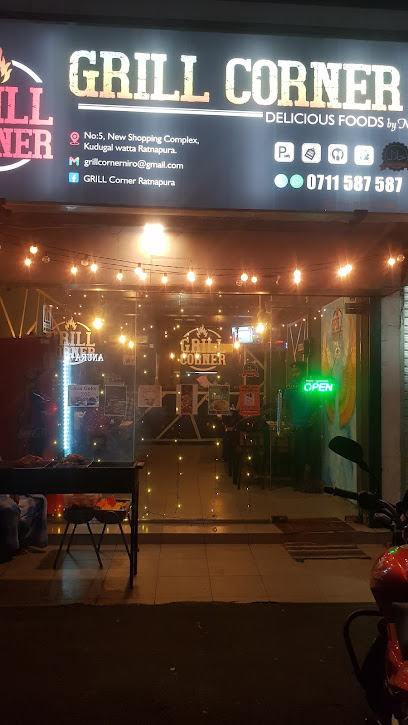
Curry Dish Restaurant
Experience authentic Sri Lankan flavors at Curry Dish Restaurant in Ratnapura - a must-visit for every food lover.
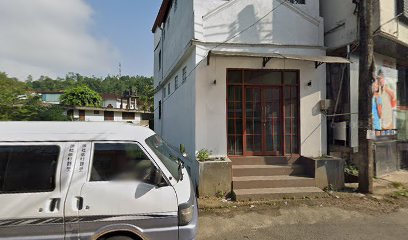
Corundum Family Restaurant
Experience authentic Sri Lankan cuisine at Corundum Family Restaurant in Ratnapura, where every dish tells a story of tradition and flavor.
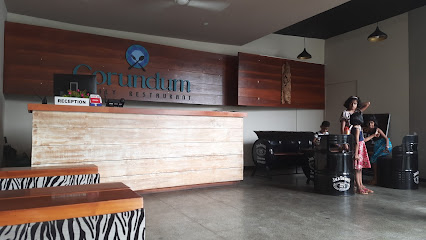
Markets, malls and hidden boutiques
NOLIMIT - Ratnapura
Explore the latest fashion trends at NOLIMIT - Ratnapura, your go-to clothing store for stylish apparel and great deals in Sri Lanka.
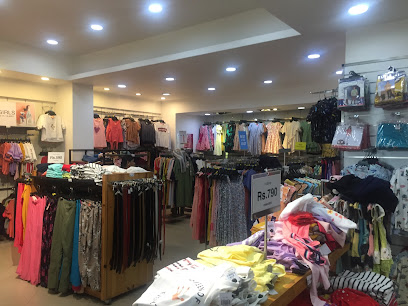
CIB Shopping Center - Ratnapura
Explore CIB Shopping Center in Ratnapura for a delightful shopping experience filled with diverse clothing options at affordable prices.
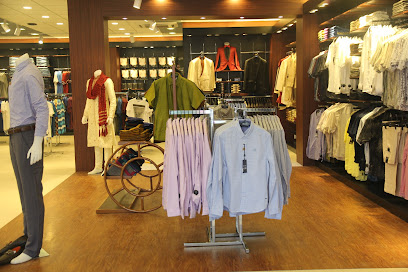
Rich Look
Explore the latest trends and unique designs at Rich Look, Ratnapura's ultimate destination for fashion-forward clothing and accessories.
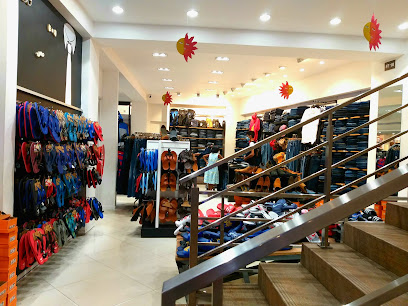
Upul's International
Explore Upul's International in Ratnapura, where unique Sri Lankan clothing meets affordability and style, creating the perfect shopping experience.
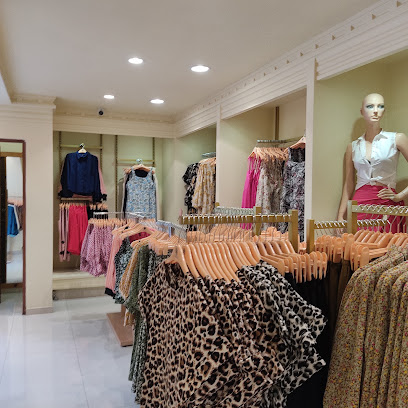
Sriyani Dress Point - Ratnapura
Discover the vibrant fashion scene at Sriyani Dress Point in Ratnapura, offering a unique blend of traditional and modern clothing styles.
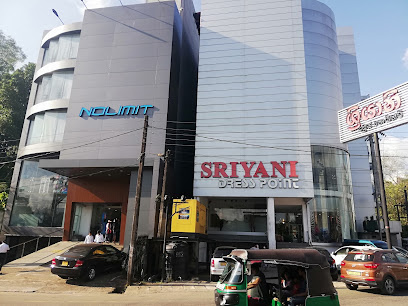
Gunathilaka Stores & Hardware
Explore Gunathilaka Stores & Hardware in Ratnapura for local crafts, tools, and a taste of Sri Lankan hospitality.

Style Walk
Discover the vibrant fashion scene at Style Walk in Ratnapura, offering a unique blend of local craftsmanship and modern styles for all occasions.
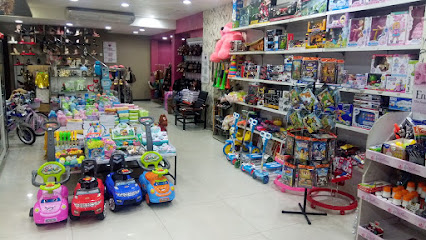
Thelithuda Book Shop
Explore a treasure trove of literature and unique home goods at Thelithuda Book Shop in Ratnapura, Sri Lanka.
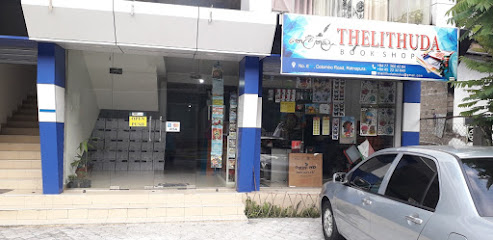
Aroos Shopping Center
Explore Aroos Shopping Center in Ratnapura for a unique shopping experience featuring local and international clothing styles.
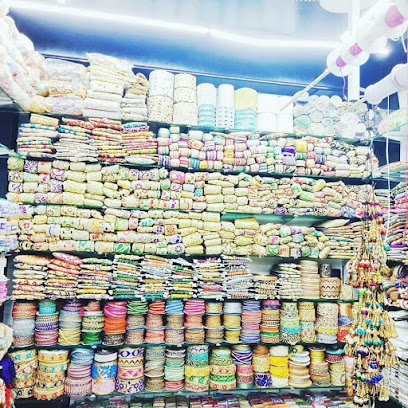
Prasanga Shopping Centre
Experience the heart of Ratnapura's fashion scene at Prasanga Shopping Centre, a must-visit clothing store for every tourist.
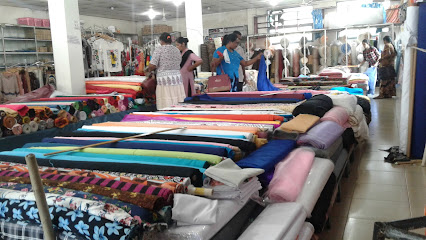
Unique Book Shop & Communication
Explore the rich literary offerings of Ratnapura at Unique Book Shop & Communication, where books meet modern convenience in a charming setting.
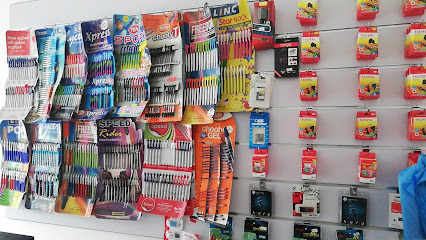
Maala Dress Point
Explore the vibrant fashion scene at Maala Dress Point, Ratnapura's go-to clothing store for stylish and traditional attire.
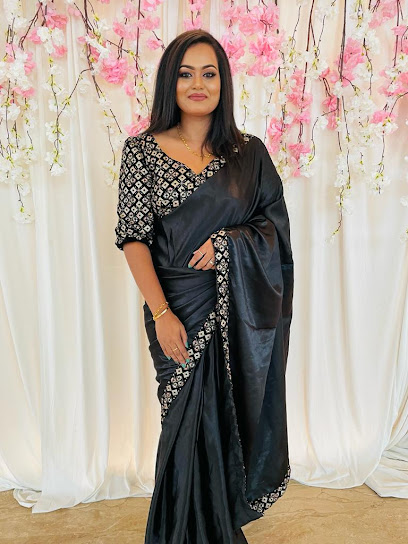
Regalcrafts Gift Shop
Explore Regalcrafts Gift Shop for unique Sri Lankan souvenirs that capture the essence of local craftsmanship and artistry.

Sandeep Stores
Explore local flavors and crafts at Sandeep Stores, your gateway to authentic Sri Lankan culture in Ratnapura.
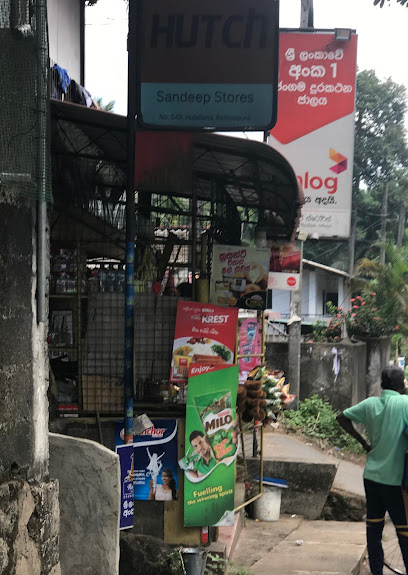
Drezza Colection online shoping
Explore the vibrant fashion scene at Drezza Collection in Ratnapura, where quality meets style in a charming shopping experience.

Essential bars & hidden hideouts
Iceberg Cafe
Discover the essence of Sri Lankan cuisine at Iceberg Cafe in Ratnapura, where delightful dishes and warm hospitality await every traveler.
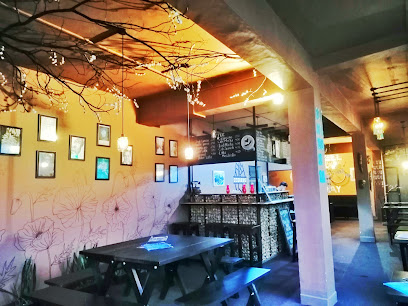
Machan Ratnapura (මචං)
Experience the vibrant charm of Machan Ratnapura, a lively bar in Kuruwita, perfect for unwinding with local drinks and great company.
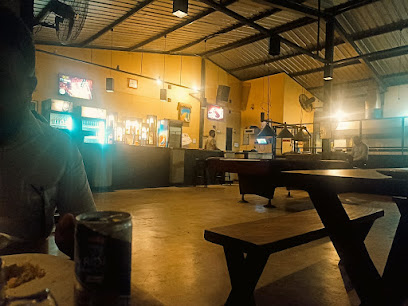
Diamond Rest
Experience the flavors of Sri Lanka at Diamond Rest, a cozy restaurant in Ratnapura offering diverse dishes and a welcoming atmosphere.
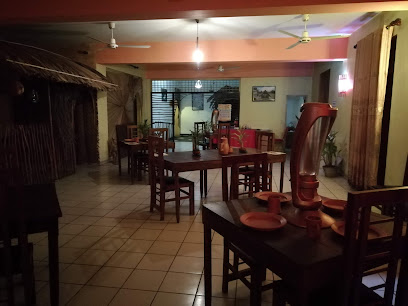
Baduwaththa Wine Stores
Discover the warmth of local hospitality and indulge in exquisite wines at Baduwaththa Wine Stores, a hidden gem on Ratnapura Road.
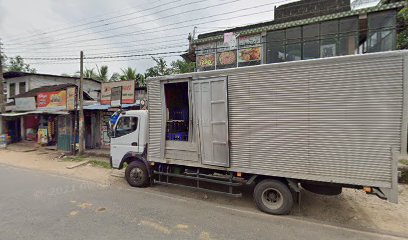
Royal palace
Discover the Royal Palace in Ratnapura, a historical landmark showcasing Sri Lanka's rich heritage and architectural beauty.
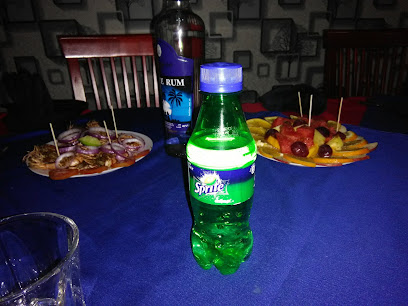
Perera Liquor Stores
Discover the vibrant spirit of Ratnapura at Perera Liquor Stores, a cozy bar offering a wide selection of local and imported beverages.
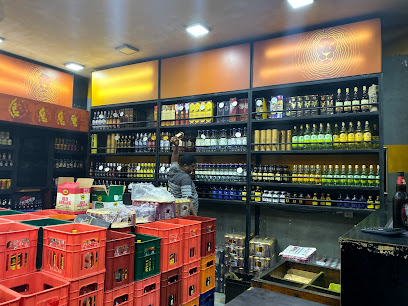
Wine Stores Elapata
Experience the best of local and international wines at Wine Stores Elapata, a charming bar on Ratnapura-Palawela-Karawita Rd, perfect for relaxation.
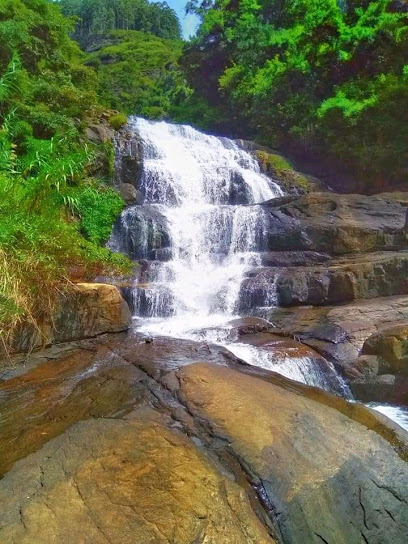
Richmond Hotel
Discover the lively ambiance and local flavors at Richmond Hotel, a premier pub in Ratnapura, Sri Lanka, perfect for an unforgettable night out.
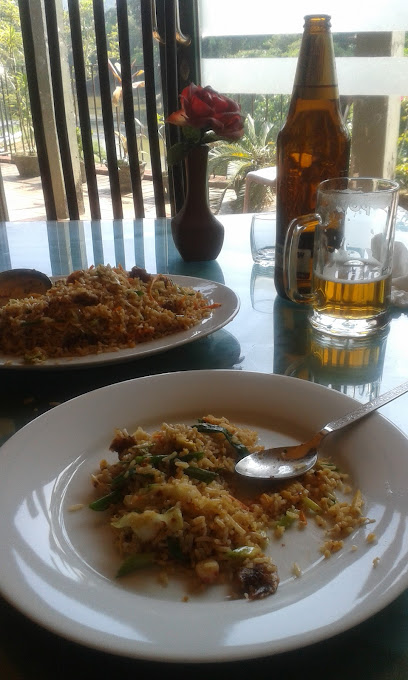
New Concord Snaks
Discover the culinary charm of New Concord Snaks in Ratnapura, offering an enticing selection of Western dishes in a welcoming atmosphere.
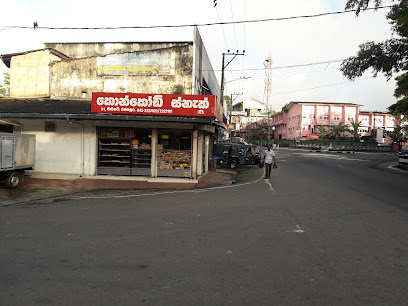
Golden Eagle
Discover the charm of Ratnapura at Golden Eagle, a cozy bar offering a delightful selection of drinks and snacks in a warm atmosphere.
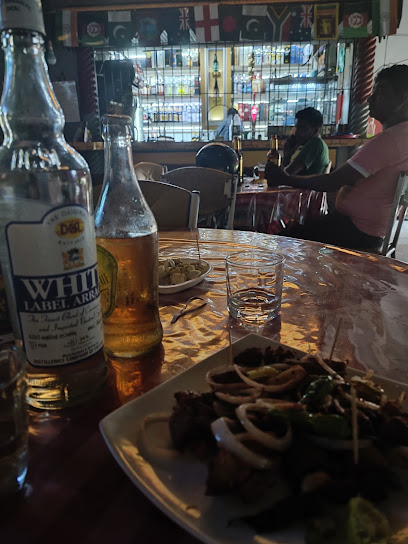
309 Doctors' Lounge
Experience the tranquil charm of 309 Doctors' Lounge in Ratnapura, where relaxation meets exceptional service in a serene setting.
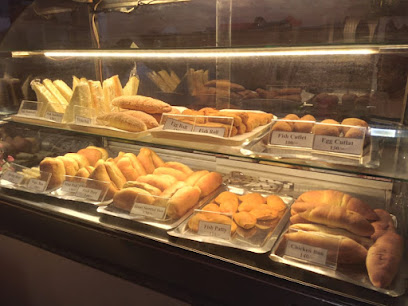
Asiri Wine Stores
Experience the cozy charm of Asiri Wine Stores in Ratnapura, where quality wines and local flavors await you.
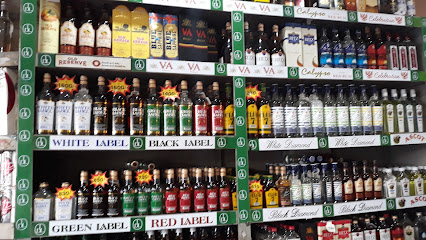
Max Beer Bar
Discover the refreshing charm of Max Beer Bar in Elapatha, where local brews and a cozy atmosphere await you.
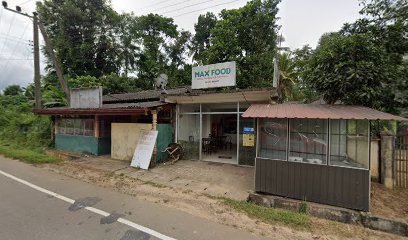
Cool Kitchen Juice Bar
Discover the fresh flavors of Kuruwita at Cool Kitchen Juice Bar, where health meets taste in every refreshing sip.
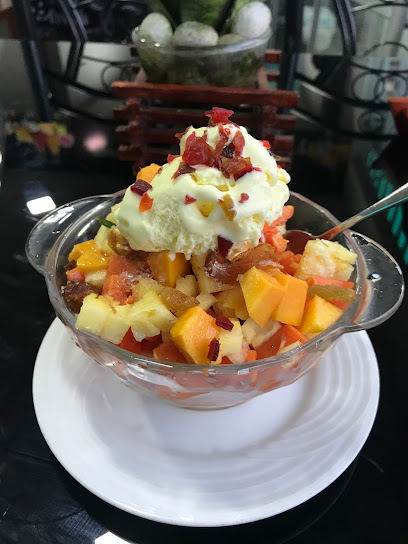
Local Phrases about Ratnapura
-
- Helloආයුබෝවන්
[ayubowan] - Goodbyeආදරේ
[adare] - Yesඔව්
[ow] - Noනෑ
[nā] - Please/You're welcomeකරනවා/කියනවා
[karunavā/kiyanavā] - Thank youඔබේ ස්තූතියි
[obē sthūthiyi] - Excuse me/Sorryසමාජවන්/කිසිවකිනවා
[samājawan/kisiwakinavā] - How are you?ඔයාට කොහෙද?
[ōyāta koheda?] - Fine. And you?හොදයි. ඔයා?
[hōdayi. ōyā?] - Do you speak English?ඔයාගේයානාම කතාකරයිද?
[ōyāgēyanāma kathākarayida?] - I don't understandමම එකතු වෙන්නේනෑ
[mama ekathu wenna nā]
- Helloආයුබෝවන්
-
- I'd like to see the menu, pleaseකරුණාකර මෙනු බලපත්රය බලාගන්න
[karunakara menu balapatraya balāganna] - I don't eat meatමම මස් කරියේ නෑ
[mama mas kariyē nā] - Cheers!සුභප්පාදනය!
[subappādanaya] - I would like to pay, pleaseකරුණාකර ගෙවන්නේද
[karunakara gewan nēda]
- I'd like to see the menu, pleaseකරුණාකර මෙනු බලපත්රය බලාගන්න
-
- Help!උකුල්ලට!
[ukullata] - Go away!යන්න!
[yanna] - Call the Police!පොලිස්ටකරුගේයි!
[polistakarugēyi] - Call a doctor!වෛරයකරුගේයි!
[vārayakarugēyi] - I'm lostමම බැරිමෙන්න
[mama bārimenna] - I'm illමම අස්වල්ලයි
[mama asvallayi]
- Help!උකුල්ලට!
-
- I'd like to buy...මම ... මිලියන්නෙන්න
[mama ... milin nennēnna] - I'm just lookingමම පොනවන්න
[mama pōnavanna] - How much is it?එය කොහොදයි?
[ēya kohodayi?] - That's too expensiveඑය වේගයි
[ēya vēgayi] - Can you lower the price?මිල අඩු කරයිද?
[mila adu karayida?]
- I'd like to buy...මම ... මිලියන්නෙන්න
-
- What time is it?වේදනාගේකොහොදයි?
[vēdanāgēkohodayi?] - It's one o'clockඑක් ටයල්කය
[eka tayalkaya] - Half past (10)ප්රතමාවෙක් වැනිදා
[prathamavēk wānidayā] - Morningඋදේ
[udē] - Afternoonදැකුලු
[dēkulu] - Eveningසවස
[savasa] - Yesterdayඊයේ
[īyē] - Todayඅද
[ada] - Tomorrowහෙයින්
[heyin] - 1එක
[eka] - 2දෙක
[dēka] - 3තුන
[thuna] - 4හත
[hata] - 5පහ
[paha] - 6හය
[haya] - 7හත
[hata] - 8අට
[ata] - 9නය
[naya] - 10දස
[dasa]
- What time is it?වේදනාගේකොහොදයි?
-
- Where's a/the...?... කොන්දකින්ද?
[... konadakindā?] - What's the address?ලිපිනය කුමක්ද?
[lipinaya kumakda?] - Can you show me (on the map)?මම පෙත්ගත්තන්ද?
[mama pētgattandā?] - When's the next (bus)?ඊළඟ ... කොන්දකින්ද?
[īlagaya konadakindā?] - A ticket (to ....)ගානවකින්ද
[gānavakindā]
- Where's a/the...?... කොන්දකින්ද?
History of Ratnapura
-
Ratnapura, translating to 'City of Gems' in Sinhala, is believed to have been a significant settlement since ancient times, dating back to the era of the Sinhalese Kingdoms. The region’s name itself highlights its long-standing association with gem mining, a tradition that has contributed to its historical and cultural significance.
-
Ratnapura's gem mining history goes back over 2,000 years. Ancient texts and folklore often mention the region’s rich gem deposits. The Mahavamsa, an ancient Sri Lankan chronicle, references gems from Ratnapura being used in the construction of stupas and to adorn royal treasures. The city was a key source of precious stones for ancient kings and traders.
-
During the colonial period under Portuguese, Dutch, and British rule, Ratnapura's gem industry saw significant transformations. The British, in particular, capitalized on the gem resources, establishing organized mining operations and exporting gems to Europe. This period marked the beginning of Ratnapura’s reputation as a global gem trade hub.
-
Ratnapura’s rich natural resources attracted a diverse population over the centuries, resulting in a cultural melting pot. The city is home to a mix of Sinhalese, Tamil, Muslim, and Burgher communities, each contributing to its vibrant culture. Festivals, religious ceremonies, and traditional practices from these various groups are an integral part of Ratnapura’s cultural fabric.
-
Adam's Peak, or Sri Pada, is a significant pilgrimage site located near Ratnapura. Revered in multiple religions, the mountain attracts pilgrims from various faiths who come to see the 'sacred footprint' at its summit. This pilgrimage has been a cultural cornerstone for centuries, intertwining Ratnapura’s history with spiritual significance.
-
Today, Ratnapura remains a bustling center for gem trade. The city balances its ancient traditions with modern advancements. Gem markets, museums, and educational institutions dedicated to gemology are prominent, reflecting its continuing legacy. Ratnapura’s economy and identity are still deeply intertwined with its gem-rich heritage.
-
Ratnapura is surrounded by lush landscapes and is a gateway to several national parks and reserves. Archeological sites and natural wonders such as the Sinharaja Forest Reserve, a UNESCO World Heritage Site, showcase the region’s biodiversity and historical depth. These sites attract researchers, historians, and nature enthusiasts alike.
Ratnapura Essentials
-
Ratnapura is located approximately 100 kilometers southeast of Colombo, the capital city of Sri Lanka. The nearest airport is Bandaranaike International Airport (CMB) in Colombo. From Colombo, you can reach Ratnapura by bus, taxi, or train. Buses and taxis are available from the airport and the central bus station in Colombo. The journey by road takes around 3 to 4 hours, depending on traffic. Alternatively, you can take a train from Colombo Fort Railway Station to Ratnapura, which offers a scenic route passing through lush landscapes.
-
Ratnapura is well-served by a network of buses and tuk-tuks (three-wheeled taxis) that can take you around the city and to nearby attractions. Local buses are the most economical option but can be crowded. Tuk-tuks are convenient for short distances and offer a flexible way to explore the area. For longer trips, you can hire a private taxi or rent a car. Be sure to negotiate the fare before starting your journey if using a tuk-tuk or taxi. Walking is also a feasible option within the city for short distances.
-
The official currency in Sri Lanka is the Sri Lankan Rupee (LKR). Credit cards are accepted in most hotels, larger restaurants, and shops. However, it is advisable to carry cash, especially when visiting smaller establishments and local markets. ATMs are widely available in Ratnapura, but it is prudent to have enough cash on hand for emergencies. Currency exchange services are available at banks and authorized money changers.
-
Ratnapura is generally a safe destination for tourists. However, it is important to take standard precautions. Avoid walking alone at night in unfamiliar areas and keep an eye on your belongings in crowded places. While Ratnapura does not have specific high-crime areas targeting tourists, it is best to stay vigilant. Be cautious when dealing with street vendors and avoid displaying valuable items openly.
-
In case of emergency, dial 119 for police assistance or 110 for an ambulance. The local police station and medical facilities are available in Ratnapura. It is recommended to have travel insurance that covers medical emergencies. For minor health issues, there are pharmacies in the city where you can purchase over-the-counter medications. The Ratnapura General Hospital provides medical care, and there are several private clinics as well.
-
Fashion: Do dress modestly, especially when visiting religious sites. Avoid wearing revealing clothing. Religion: Do respect local customs and traditions. Always remove your shoes and cover your head when entering temples. Public Transport: Do be respectful and give up your seat to elderly passengers. Don't eat or drink on public transport. Greetings: Do greet people with a friendly smile and a nod. The traditional Sri Lankan greeting involves clasping hands together in a prayer-like gesture and saying 'Ayubowan.' Eating & Drinking: Do try local delicacies and accept food offerings graciously. Don't refuse hospitality, as it is considered impolite.
-
To experience Ratnapura like a local, visit the local markets where you can buy fresh produce, gemstones, and traditional Sri Lankan goods. Engage with locals, as they are often friendly and willing to share stories about the city's history and culture. Don't miss visiting the gem mines, which Ratnapura is famous for. For an authentic experience, try to arrange a guided tour of a gem mine. Additionally, explore the natural beauty of the surrounding rainforests and waterfalls, such as Bopath Ella and Katugas Ella.
Trending Landmarks in Ratnapura
-
Sri Sumana Saman Devalaya
-
Katugas Ella Waterfall
-
Rathnapura National Museum
-
Dehena Waterfall
-
Mapalana Ella Falls
-
Rajanawa Waterfall
-
පොත්ගුල් විහාරය
-
Dumpus Ella
-
Wanaidalaketiya Sri Ariyagnana Temple
-
Rathnapura Clock Tower (රත්නපුර ඔරලෝසු කණුව)
-
රත්මල් ඇල්ල
-
Gemmological musemum
-
පොත්ගුල් විහාරය - Cave
-
Lihiniyan Kelina Ella Falls
-
Ratnapura Portuguese Fort – රත්නපුර පෘතුගීසි බලකොටුව
Nearby Cities to Ratnapura
-
Things To Do in Bentota
-
Things To Do in Colombo
-
Things To Do in Hikkaduwa
-
Things To Do in Kandy
-
Things To Do in Ella
-
Things To Do in Galle
-
Things To Do in Unawatuna
-
Things To Do in Negombo
-
Things To Do in Mirissa
-
Things To Do in Matara
-
Things To Do in Sigiriya
-
Things To Do in Polonnaruwa
-
Things To Do in Anuradhapura
-
Things To Do in Trincomalee
-
Things To Do in Jaffna








